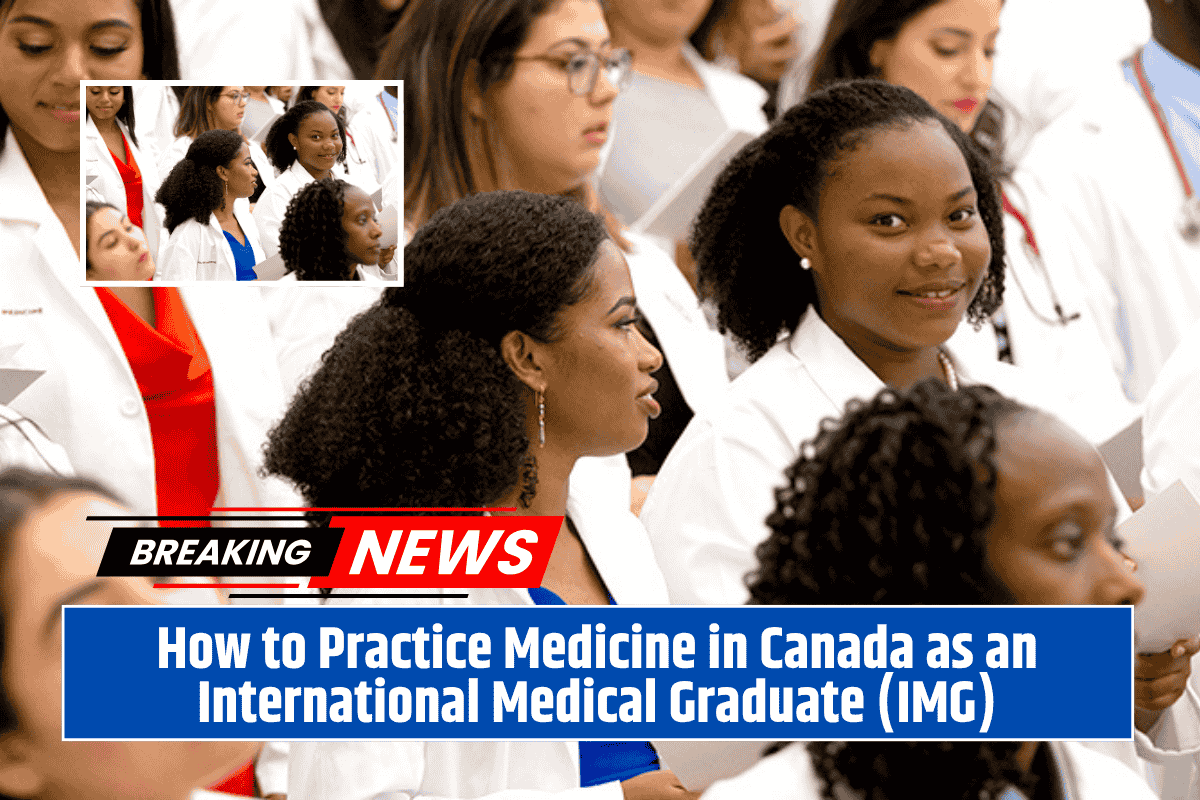Many students dream of becoming doctors in Canada, but they may not know how to get there—especially if they are not Canadian citizens or permanent residents. The good news is that it’s possible, and St. George’s University (SGU) has helped many international students reach their goals of practicing medicine in both Canada and the United States.
Canada relies heavily on internationally-trained doctors. According to the Canadian Institute for Health Information (CIHI), nearly one-third of doctors in Canada are internationally educated, with even more working in family medicine. This means there are real opportunities for qualified IMGs.
This guide will help you understand the steps and requirements for non-Canadian students who wish to practice medicine in Canada.
Important Note Before You Start
The path to becoming a doctor in Canada depends on several factors:
- Your citizenship or residency status
- Your specialty or subspecialty
- Your location
- The province or territory where you wish to work
Different provinces have different rules, exams, and assessments. So always do detailed research, and if needed, contact the Medical Council of Canada (MCC) or the provincial licensing authority for guidance specific to your situation.
Why Training in the US Can Help
Many students choose to complete their postgraduate medical training in the US before applying to work in Canada. This is because US residency training programs are similar to Canadian ones, and many Canadian provinces recognize this training.
In recent years, some Canadian provinces have even adjusted their policies to attract international doctors who trained in the US.
Basic Eligibility to Practice in Canada
To apply for medical licensure in Canada, you usually need:
- A medical degree from a school recognized by the World Federation for Medical Education (WFME) (SGU is recognized)
- Residency training in the US accredited by the ACGME
- (Optional) US board certification to improve your chances
Understanding the Role of the Medical Council of Canada (MCC)
The MCC sets the national standards for becoming a doctor in Canada. They provide a qualification called the Licentiate of the Medical Council of Canada (LMCC). Here’s what you need to get it:
- Pass the MCCQE Part 1 exam
- Pass the NAC (National Assessment Collaboration) exam
- Complete at least 12 months of recognized postgraduate training
Note: The LMCC is not a full license, but it is accepted by most provincial medical boards.
Some provinces, like Ontario, British Columbia, and Alberta, may waive exams like MCCQE or NAC if you are board certified in the US. However, this depends on the province and your medical background.
If you are planning to become a specialist in Canada, you’ll need to take Royal College of Physicians and Surgeons exams in your chosen field.
Tools and Platforms to Help You
The MCC offers a platform called PhysiciansApply.ca to:
- Submit credentials and documents
- Register for qualifying exams
- Apply for licensure with provincial medical authorities
Think of it like Canada’s version of the USMLE and ERAS systems combined.
Apply for Licensure in a Canadian Province
Canada has 13 provinces and 3 territories, and each has its own medical board. After receiving your LMCC, you must apply for a license in the province where you want to work.
Many provinces accept US residency and board certification. These include:
- College of Physicians and Surgeons of Ontario (CPSO)
- College of Physicians and Surgeons of British Columbia (CPSBC)
- College of Physicians & Surgeons of Alberta (CPSA)
Some provinces may also ask you to complete a Practice-Ready Assessment (PRA). This program checks your clinical skills and ensures you meet Canadian healthcare standards.
If your dream is to become a doctor in Canada, start early by choosing the right medical school and understanding the requirements for licensure. SGU has a strong track record of helping international students, including non-Canadians, prepare for both US and Canadian practice.
Want more guidance? Explore SGU’s free resources:
- Journey to Become an MD – for a complete path to becoming a doctor
- Medical Residency Guide – to understand the Match process and postgraduate training
FAQs
Can non-Canadians practice medicine in Canada?
Yes, international medical graduates (IMGs) who meet Canadian licensing requirements—including exams, recognized training, and credential verification—can practice medicine in Canada.
What is the LMCC and why is it important?
The Licentiate of the Medical Council of Canada (LMCC) is a qualification granted after passing exams and completing training. It’s needed to apply for provincial medical licensure in Canada.
Do Canadian provinces accept US medical residency training?
Yes, many provinces like Ontario, British Columbia, and Alberta recognize ACGME-accredited US residency programs and may accept US board certification for licensure.
What exams do I need to take to practice medicine in Canada?
You usually need to pass the MCCQE Part 1 and the NAC exam. Some provinces may waive these if you are US board certified. Requirements vary by province.
What is a Practice-Ready Assessment (PRA)?
A PRA is a clinical assessment program in Canada for IMGs who completed residency abroad. It ensures your skills meet Canadian standards before you start practicing.
